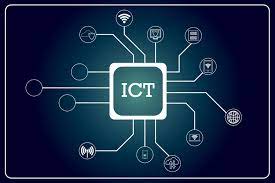ICT is a fulcrum of development. It is an accelerator, amplifier, and augmenter of change. It has a huge potential to transform rural communities. Despite its potential, access and utilisation of ICT services across the country is still limited. Similarly, the availability of sustainable (reliable, affordable and clean) energy is critical for economic growth, poverty reduction, as well as the social and cultural transformation of society. The aspiration of Agenda 2030 is to achieve universal access to electricity by 2030 (SDG 7). Uganda’s energy mix is biased towards biomass. The energy consumption mix comprises oil products, bio mass and electricity. Biomass contributes 88percent in form of firewood, charcoal and crop residues. This has adverse socioeconomic implications on health, environment, gender and household productivity. Annually Uganda losses 120,000 hectares of forest cover of which 60percent (72,000 hectares) is due to charcoal and firewood. It is estimated that a Ugandan household emits 30 tonnes of carbon per year compared to 5 tonnes in UK.
The focus of NGS Uganda under this programme is to strengthen community access and integration and use of ICTs and of clean renewable energy to amplify community transformation from households to public entities such as schools, hospitals .etc.


